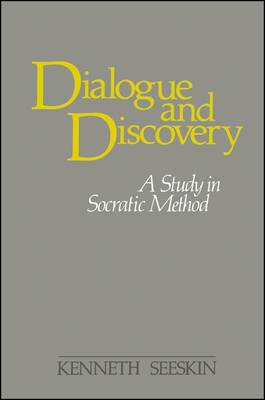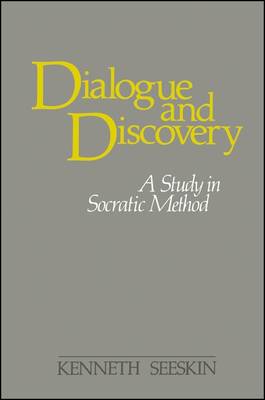
- Afhalen na 1 uur in een winkel met voorraad
- Gratis thuislevering in België vanaf € 30
- Ruim aanbod met 7 miljoen producten
- Afhalen na 1 uur in een winkel met voorraad
- Gratis thuislevering in België vanaf € 30
- Ruim aanbod met 7 miljoen producten
Zoeken
Omschrijving
This book examines the Socratic method of elenchus, or refutation. Refutation by its very nature is a conflict, which in the hands of Plato becomes high drama. The continuing conversation in which it occurs is more a test of character than of intellect. Dialogue and Discovery shows that, in his conversations, Socrates seeks to define moral qualities-moral essences-with the goal of improving the soul of the respondent.
Ethics underlies epistemology because the discovery of philosophic truth imposes moral demands on the respondent. The recognition that moral qualities such as honesty, humility, and courage are necessary to successful inquiry is the key to the understanding of the Socratic paradox that virtue is knowledge.
The dialogues receiving the most emphasis are the Apology, Gorgias, Protagoras, and Meno.
Ethics underlies epistemology because the discovery of philosophic truth imposes moral demands on the respondent. The recognition that moral qualities such as honesty, humility, and courage are necessary to successful inquiry is the key to the understanding of the Socratic paradox that virtue is knowledge.
The dialogues receiving the most emphasis are the Apology, Gorgias, Protagoras, and Meno.
Specificaties
Betrokkenen
- Auteur(s):
- Uitgeverij:
Inhoud
- Aantal bladzijden:
- 179
- Taal:
- Engels
- Reeks:
Eigenschappen
- Productcode (EAN):
- 9780887063367
- Verschijningsdatum:
- 2/01/1987
- Uitvoering:
- Paperback
- Formaat:
- Trade paperback (VS)
- Afmetingen:
- 152 mm x 229 mm
- Gewicht:
- 281 g

Alleen bij Standaard Boekhandel
+ 109 punten op je klantenkaart van Standaard Boekhandel
Beoordelingen
We publiceren alleen reviews die voldoen aan de voorwaarden voor reviews. Bekijk onze voorwaarden voor reviews.











